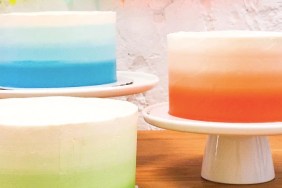Homemade food is undoubtedly the best for babies. One not only is feeding them fresh and healthy ingredients, but it makes it easier for parents to keep an eye on their kids’ salt and sugar intake. However, sometimes due to work pressure or simply life getting in the way, providing freshly cooked food is not possible. Bulk cooking is an option but not everyone likes going down that path. Hence, store-bought baby food comes to their rescue. But just because the packet says baby food, it does not necessarily mean that it is healthy for your little ones. So, next time, consider these things while buying baby food to ensure you pick the right one for your kiddo to help with their overall development.
Read the label of every baby food available in the market before buying
The first thing to check while buying baby food is the label. Check the first ingredient on the label to make sure that it is indeed baby food. For instance, after picking a jar of sweet potatoes, make sure they are the first ingredient (and preferably, the only one, along with a few others to help preserve them) on the list. All ingredients on the labels are generally in order of most to least amount. Hence, double-check the ingredients’ ranking before putting them in your cart.
Avoid serving packaged rice cereal to kids below 1 year

Some of the baby foods have heavy metals like mercury, lead, cadmium, and arsenic in them, which can put the health of your kiddos at risk. So, be it pureed carrots or rice cereals, avoid giving them to your children (especially to the ones aged below one year). Rice cereals often contain high levels of arsenic, which is only harmful to young bodies. So you can enjoy your rice at ease, but prevent giving it to your little ones till they are a little older. Instead of this, opt for grains like quinoa, barley, and oatmeal, which are low in heavy metals, high in fiber, and overall, better for your infant. Moreover, you can always consult your doctor to learn all about the best baby food brands available near you and what packaged food items you can stock for your kiddos.
Opt for iron-rich baby food
Iron is the most essential nutrient that is required for a baby’s growing body. Thus, it is no wonder moms around the globe force their kids to eat leafy green vegetables. That is why, while buying baby food, opt for iron-rich items. However, make sure these packaged food items do not have any sweeteners, as they will not only overpower the natural flavor but also make it difficult for your kiddos to enjoy home-cooked green veggies later in life.
Buy baby food as per your kid’s age only

Age is one of the most crucial factor to consider while buying baby food. Baby food is always categorized by different stages or months. This means the food you buy will be different in terms of the ingredients and texture depending on what is your infant’s age. For example, Stage 1 baby food is only for kids between 4 and 6 months old, comprising single-ingredient smooth purees. However, Stage 2 is for infants aged 6 to 8 months, and Stage 3 is for older babies with various textures, encouraging kids to chew/drink and digest.
Get familiar with food jargon
If you want to pick the right baby food from the aisle or online, understand the meaning of acronyms written on the boxes. For instance, understand what USDA-certified organic, non-GMO, BPA-free, etc., on the label stand for or what fructose, dextrose, and so on mean. Once you are well aware of the terms, it will be much easier for you to choose a healthy baby food product for your child.
Also, avoid buying baby food that has salt and sugar (especially a high percentage of it). Always check for the expiration date and feed your child as per the instructions available on the packet. If possible, opt for jarred baby food over pouch meals, as the content is visible and food stays fresh for longer. Moreover, recycling or reusing a jar is much easier, thus creating less waste. However, do buy pouches if you plan to travel with your little one. Packaged baby food is not a bad option, provided you buy them keeping these things in mind.








